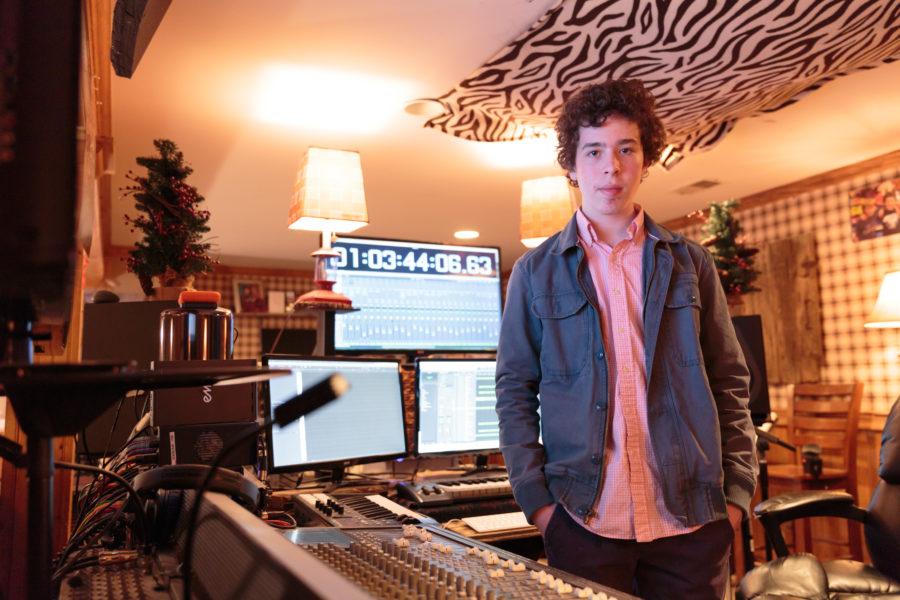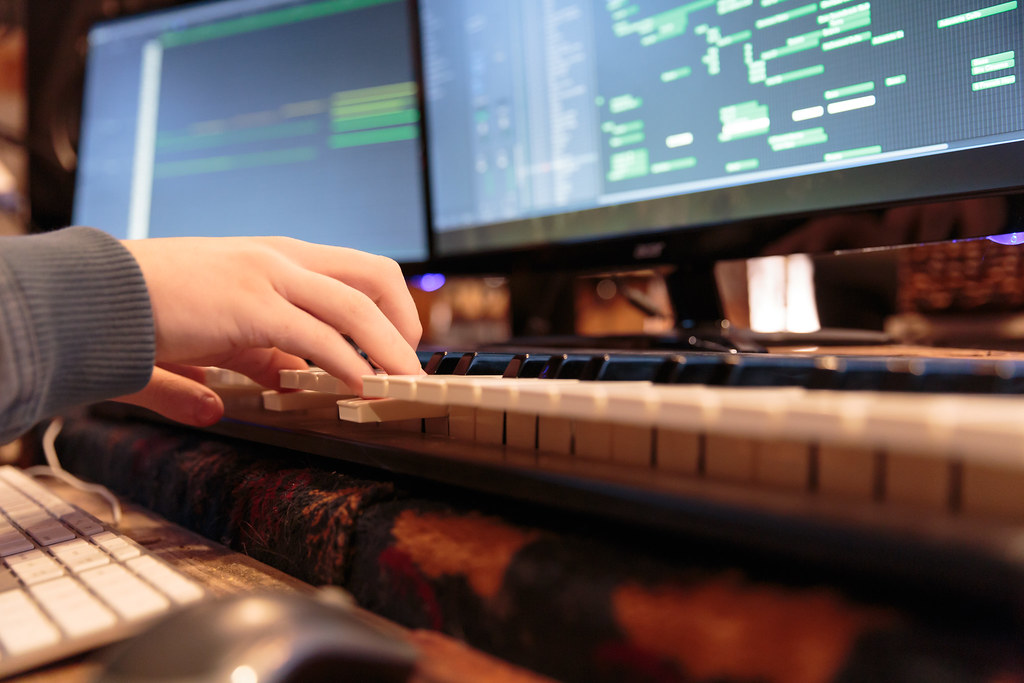Q&A with Freshman Ashton Gleckman
What have you written music for in the past?
A filmmaker in New York City… was directing a Holocaust documentary film, and he has partners all around the world who were helping fund the project, and the main source is Project Witness… it was completely dedicated to preserving history, so over 50 Holocaust survivors were interviewed for this project, and I came onto the project quite late and composed about 45 minutes of music for the documentary.
When did you begin to compose music?
I started playing music at around the age of 7, and ever since then I’ve been a multi-instrumentalist; I’ve played guitar, drums; not only have I played them but I’ve also taken lessons on them, studied them; I’ve been composing music, as in orchestral and stuff like that, for three or four years now.
What do you envision doing as an adult?
I envision going to school at either USC Thornton School of Music in California, or I also envision going to Europe… Obviously I want to compose for major motion pictures, Hollywood films… So I would say my area, right now, is just in all of the arts. So I’m not just a composer, I’m not just a filmmaker, but inside of each of these individual topics, there’s so much more subcategories that I’m involved in.
What made you want to start composing instead of just playing?
I don’t know, I guess I just enjoyed the idea of writing music; it allowed me to have more creative freedom… When you’re performing, everything is very sudden; you’re always having to respond to the audience… and you don’t have enough time to think about what you really want to play, so whenever I’m composing, and I’m staring at those blank pages, and I’m deciding what I need to compose, everything is much more logical; I’m allowed to think a bit more, and it’s just a much more open environment. It allows more accessibility.
What type of work goes into composing?
It’s much more different if you’re composing concert music versus composing film music… You have to start out by spotting, which is pretty much seeing where the music will go, then you split up each of the tracks, then you decide what’s going to be the instrumentation, how’s the orchestration going to go, what kind of feel do I want to possess… And then you get into the more complex stuff, like harmony, stuff like that, and then the actual composition… So it’s a very long process, but for somebody who’s been studying it as long as I do, and knows as much… A lot of people when they are composing for film will rely on inspiration… they’ll just rely on watching the video, and they’ll be like, ‘Oh, I am very inspired by this; I’ll just go write music,’ but for me, something that differentiates me as a composer from many others is that since I’ve studied music theory and I have a very good background in music theory and stuff like that and composition, then I don’t need to rely on that inspiration. Because sometimes, you just need to write music, even if you don’t want to, so I have that toolbox full of ideas and full of stuff that I can use that are built up over my years of studies.
What kind of film are you currently making?
It’s called “Obscurity,” and we took on the mythical legend of the “Slenderman,” and I sort of wrote a 50-60-page script that sort of involved that character, but sort of turned it into a more dramatic, action-y, sort of in-depth story that involves a mother and a daughter. I wrote that script, I called in a script editor, we spent a few months editing the script back in 2014, and then I had a casting call in Fishers, IN at the Fishers Conference Center and we had tons of actors come in… we had online auditions sent in, we took on a bunch of people and created a cast for the film that’s around 20 people.

































![AI in films like "The Brutalist" is convenient, but shouldn’t take priority [opinion]](https://hilite.org/wp-content/uploads/2025/02/catherine-cover-1200x471.jpg)









































![Review: “The Immortal Soul Salvage Yard:” A criminally underrated poetry collection [MUSE]](https://hilite.org/wp-content/uploads/2025/03/71cju6TvqmL._AC_UF10001000_QL80_.jpg)
![Review: "Dog Man" is Unapologetically Chaotic [MUSE]](https://hilite.org/wp-content/uploads/2025/03/dogman-1200x700.jpg)
![Review: "Ne Zha 2": The WeChat family reunion I didn’t know I needed [MUSE]](https://hilite.org/wp-content/uploads/2025/03/unnamed-4.png)
![Review in Print: Maripaz Villar brings a delightfully unique style to the world of WEBTOON [MUSE]](https://hilite.org/wp-content/uploads/2023/12/maripazcover-1200x960.jpg)
![Review: “The Sword of Kaigen” is a masterpiece [MUSE]](https://hilite.org/wp-content/uploads/2023/11/Screenshot-2023-11-26-201051.png)
![Review: Gateron Oil Kings, great linear switches, okay price [MUSE]](https://hilite.org/wp-content/uploads/2023/11/Screenshot-2023-11-26-200553.png)
![Review: “A Haunting in Venice” is a significant improvement from other Agatha Christie adaptations [MUSE]](https://hilite.org/wp-content/uploads/2023/11/e7ee2938a6d422669771bce6d8088521.jpg)
![Review: A Thanksgiving story from elementary school, still just as interesting [MUSE]](https://hilite.org/wp-content/uploads/2023/11/Screenshot-2023-11-26-195514-987x1200.png)
![Review: "When I Fly Towards You", cute, uplifting youth drama [MUSE]](https://hilite.org/wp-content/uploads/2023/09/When-I-Fly-Towards-You-Chinese-drama.png)
![Postcards from Muse: Hawaii Travel Diary [MUSE]](https://hilite.org/wp-content/uploads/2023/09/My-project-1-1200x1200.jpg)
![Review: "Ladybug & Cat Noir: The Movie," departure from original show [MUSE]](https://hilite.org/wp-content/uploads/2023/09/Ladybug__Cat_Noir_-_The_Movie_poster.jpg)
![Review in Print: "Hidden Love" is the cute, uplifting drama everyone needs [MUSE]](https://hilite.org/wp-content/uploads/2023/09/hiddenlovecover-e1693597208225-1030x1200.png)
![Review in Print: "Heartstopper" is the heartwarming queer romance we all need [MUSE]](https://hilite.org/wp-content/uploads/2023/08/museheartstoppercover-1200x654.png)





